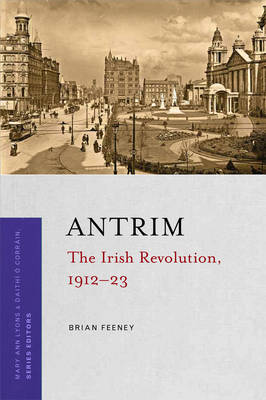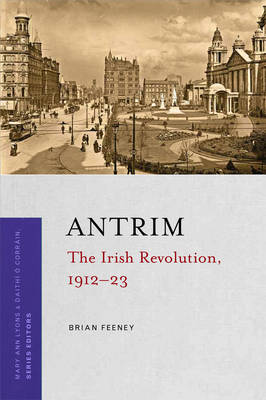
- Retrait gratuit dans votre magasin Club
- 7.000.000 titres dans notre catalogue
- Payer en toute sécurité
- Toujours un magasin près de chez vous
- Retrait gratuit dans votre magasin Club
- 7.000.0000 titres dans notre catalogue
- Payer en toute sécurité
- Toujours un magasin près de chez vous
31,45 €
+ 62 points
Description
At the beginning of the twentieth century, Antrim contained the largest Presbyterian population on the island of Ireland. It also contained most of Belfast--the largest city in Ireland--which dominated the economy of the north-east. Belfast was tightly integrated into Britain's politics and economy, and the vast majority of its inhabitants, who were overwhelmingly Presbyterian and unionist like the rest of the county, were determined to keep it that way. In Antrim there was no land war, the majority of the population supported the RIC and Crown forces, and only a minority voted for home rule. Belfast was the centre of Ulster unionist resistance to home rule, and the location of the headquarters of the Ulster Unionist Party and the UVF. This carefully researched book explores the political, economic, and social links between Ulster unionist leaders in Belfast and the Conservative Party in Britain, which proved decisive in obstructing the Irish Revolution. The book examines the outbreak of intense sectarian violence in Belfast and Lisburn in 1920, the 'Belfast Pogrom.' It describes the reconstitution of the UVF as the Ulster Special Constabulary and, controlled by unionist politicians, the USC's role in repressing the nationalist community. Using the most recent documents available, Feeney analyses the personnel, actions, and constraints the IRA's 3rd Northern Division faced, and provides the first comprehensive account of the campaign in north Antrim.
Spécifications
Parties prenantes
- Auteur(s) :
- Editeur:
Contenu
- Nombre de pages :
- 180
- Langue:
- Anglais
- Collection :
Caractéristiques
- EAN:
- 9781846828607
- Date de parution :
- 10-09-21
- Format:
- Livre broché
- Format numérique:
- Trade paperback (VS)
- Dimensions :
- 140 mm x 216 mm
- Poids :
- 294 g

Les avis
Nous publions uniquement les avis qui respectent les conditions requises. Consultez nos conditions pour les avis.






